At AT3, we’re passionate about training men and women in ministry – so much so we put it in our name! We interviewed Justin Mote (one of our Trustees and the Director of Training for the North West Partnership) about how diligently training leaders has a huge impact on the life of the local church and the individual Christian.
“We know training is really important in the local church, but who should do it?”
“The New Testament sees a variety of people involved in training. Firstly, it is our Heavenly Father who trains us. Hebrews 12.7-12 speaks of how, out of love, God trains or disciplines us to be more godly.
And as the Lord trains us, all Christians are also involved in training in one way or another. Older men are to teach younger men and older women teach younger women (Titus 2.1-8). Within the family, fathers have a primary role in the training of children, (Ephesians 6.4). Within the local church the elder or pastor teacher has a crucial role in training the church for doing ministry.
Paul instructs Timothy (2 Tim 2.2), to equip reliable men with the gospel that he has heard from Paul himself the leaders are also expected to train themselves (1 Timothy 4.7). A congregation ought to be able to see its leaders growing in godliness, or making progress.
Finally each Christian has a responsibility to train themselves. In Hebrews 6.14, the writer is rebuking his readers for their failure to make progress in the Christian life, through a failure to train themselves with solid food.”
“How does it benefit the local church for their elders and leaders to be trained?”
“In Ephesians 4, Paul speaks of the gifts that God has given to the local church. He mentions four: the apostle, the prophet, the evangelist and the pastor/teacher. The first two of these are foundational to the church and are unrepeatable, but the church has been given the gift of the New Testament that they wrote.
However the church should have evangelists and the pastor/teachers or elders in every age and their role is to equip the saints. They are part of the team, but also lead the team by teaching the Bible. This enables the whole team to use their gifts to serve each other. And more specifically they enable everyone at church to be able to speak the truth (which means speaking the gospel to each other) so that we are built up and attain maturity.
Without word ministry at the centre of the local church, the church cannot grow properly. That is why every generation needs people equipped to teach God’s word. Of course it is God who raises up such people, but as we saw above, such people need to be trained and equipped for their job.”
“So how should this work practically in the local church?”
“Firstly, we need to train the teachers. That means we need to work out how we identify those who might be teachers in the future. Questions that should be asked are: how will they be trained for their ministry? How far can that facilitated by the existing elders? How and when should we access those with specific training gifts? Those people might not be in our local church, but might be in training institutions.
Secondly, we need to think about how the local church equips fathers to take the lead within their families and how they can be trained to train their children. We need to think through the partnership between how children are taught at church and how children are taught by fathers at home.
Thirdly, we need to think about how our congregations are trained. Is the diet of sermons on a Sunday enough? What is the place of the small group, or the one-to-one? How do we evaluate how effective each of these are? Are people genuinely being equipped to serve each other with the gospel?
The Bible sees training as having a vital part in the health of each Christian and the local church. These are issues worth thinking through.”
Written in 2015


